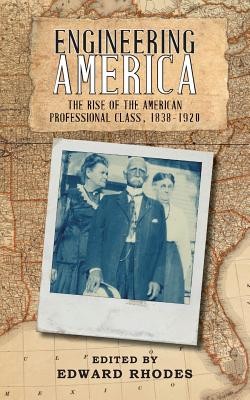
- We will send in 10–14 business days.
- Author: Edward Rhodes
- Publisher: Westphalia Press
- Year: 2014
- Pages: 150
- ISBN-10: 1935907867
- ISBN-13: 9781935907862
- Format: 12.7 x 20.3 x 0.8 cm, minkšti viršeliai
- Language: English
- SAVE -10% with code: EXTRA
Reviews
Description
In a single lifespan in the late nineteenth and early twentieth century, America passed through an extraordinary economic and social transformation. Industrialization, urbanization, immigration, and westward expansion into the vast interior of the continent yielded the structural framework of the modern America we still recognize more than a century later. The roles played by financial capital, labor, and technology in this story have been widely examined. Less well understand, however, is the remaining puzzle: how did America generate the human capital necessary for this transformation? How did a largely agrarian nation with relatively weak and largely decentralized government institutions manage to produce the professional class - the doctors, lawyers, managers, and, most importantly, engineers - essential for the emergence of a modern, industrialized, yet still liberal and democratic America? This study takes a micro approach to this question. It focuses on a single, unexceptional case, examining the process and experience through the eyes of a single participant. Born in rural New Jersey in the late 1830s, Daniel Harker Rhodes's wanderings took him from a tinsmith apprenticeship in upstate New York to service in the Civil War, and then on to secondary education, college education, and eventually a career building railroads that opened up the agricultural potential of the Great Plains, the minerals of the Rockies, and the energy resources of Texas and Oklahoma. Rhodes's detailed account highlights a number of intriguing factors: the availability of education and private capital to finance it, the absence of class barriers, social institutions and technology that permitted extraordinary geographic mobility, and perhaps most importantly the impact of deeply held Calvinist norms As with any case study, the insights that emerge are suggestive rather than definitive. In this case, however, the insights underscore the significance of an unusual combination of institutions in nineteenth century America and suggest intriguing reasons why America's pattern of social and economic development followed its distinctive course.
- Author: Edward Rhodes
- Publisher: Westphalia Press
- Year: 2014
- Pages: 150
- ISBN-10: 1935907867
- ISBN-13: 9781935907862
- Format: 12.7 x 20.3 x 0.8 cm, minkšti viršeliai
- Language: English English
In a single lifespan in the late nineteenth and early twentieth century, America passed through an extraordinary economic and social transformation. Industrialization, urbanization, immigration, and westward expansion into the vast interior of the continent yielded the structural framework of the modern America we still recognize more than a century later. The roles played by financial capital, labor, and technology in this story have been widely examined. Less well understand, however, is the remaining puzzle: how did America generate the human capital necessary for this transformation? How did a largely agrarian nation with relatively weak and largely decentralized government institutions manage to produce the professional class - the doctors, lawyers, managers, and, most importantly, engineers - essential for the emergence of a modern, industrialized, yet still liberal and democratic America? This study takes a micro approach to this question. It focuses on a single, unexceptional case, examining the process and experience through the eyes of a single participant. Born in rural New Jersey in the late 1830s, Daniel Harker Rhodes's wanderings took him from a tinsmith apprenticeship in upstate New York to service in the Civil War, and then on to secondary education, college education, and eventually a career building railroads that opened up the agricultural potential of the Great Plains, the minerals of the Rockies, and the energy resources of Texas and Oklahoma. Rhodes's detailed account highlights a number of intriguing factors: the availability of education and private capital to finance it, the absence of class barriers, social institutions and technology that permitted extraordinary geographic mobility, and perhaps most importantly the impact of deeply held Calvinist norms As with any case study, the insights that emerge are suggestive rather than definitive. In this case, however, the insights underscore the significance of an unusual combination of institutions in nineteenth century America and suggest intriguing reasons why America's pattern of social and economic development followed its distinctive course.


Reviews